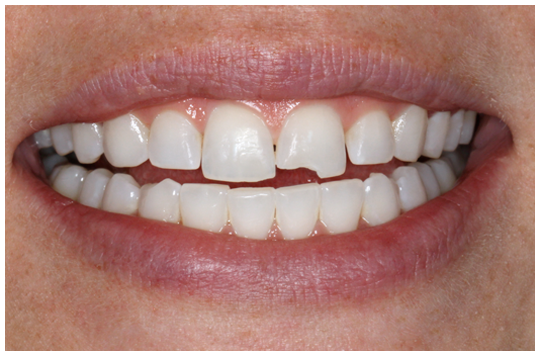If you have a chipped tooth, you’re not alone! In fact, chipped teeth are the most common dental injury today. But don’t let that little-known fact fool you into ignoring a chipped tooth; any type of dental trauma deserves immediate attention. A small chip may not cause you pain, but there could be damage underneath the surface of the tooth. Dr. Shenker can rule out cracks or internal tooth problems that aren’t visible to the naked eye. And in many cases, your chipped tooth can be repaired in just one visit.
We’ve got options!
Treatments vary according to the amount of damage. Depending on your situation, any one of these treatments may be an option for you:
Dental Bonding — Most chips can be corrected with dental bonding. Dental bonding is an efficient, durable and cost-effective way to correct minor chips.
Enamel Shaping — Often used in conjunction with dental bonding, enamel shaping can also correct small chips or surface flaws. During enamel shaping, a small portion of the tooth’s surface is removed or recontoured to smooth out imperfections.
Dental Veneers – If the chip is significant and dental bonding or enamel shaping can’t be used, you may need a veneer. These thin, porcelain wafers completely cover the surface of the tooth and are often used for front teeth.
Root Canal – Pain in the location of the chip can be a sign that the nerve is exposed. If that’s the case, a root canal may be necessary to save the tooth.
Dental Crown — A dental crown is used to completely cover larger teeth or to cap a tooth after a root canal.
Tooth Extraction — If the tooth can’t be saved, a tooth extraction may be necessary. The good news is a dental bridge or dental implants can replace missing teeth.

